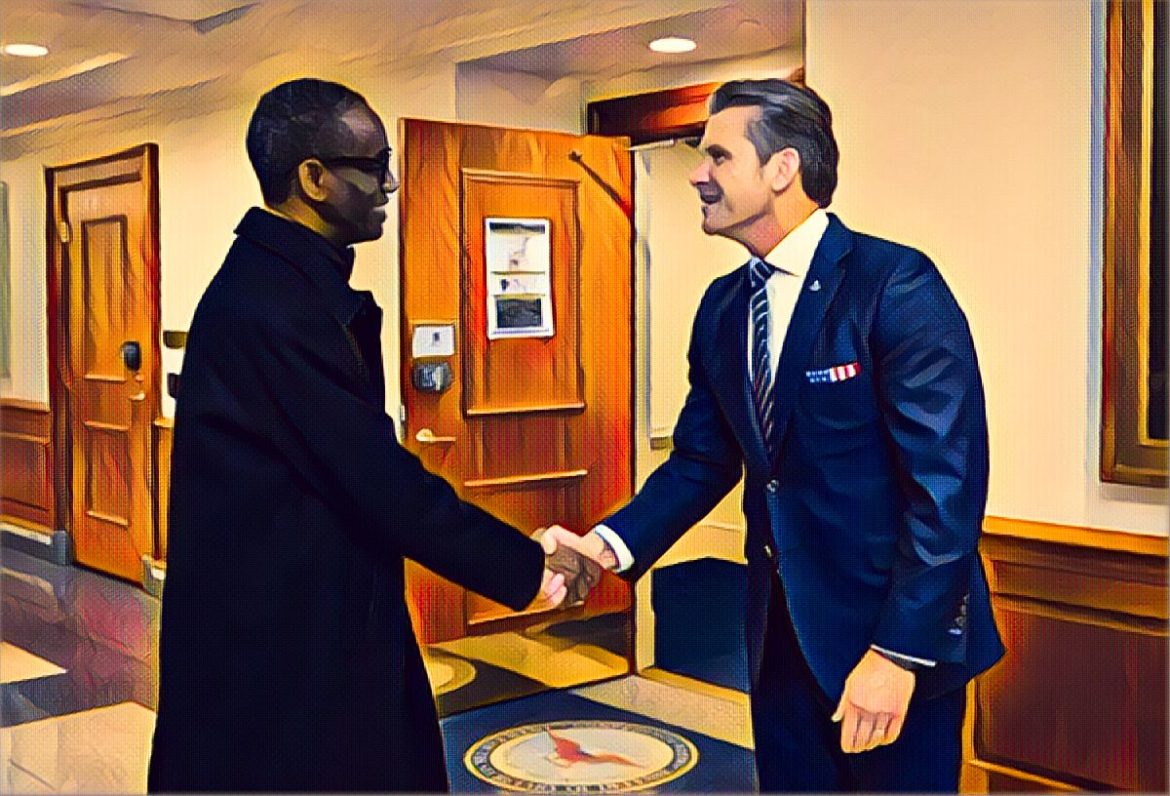KEY POINTS
- Security cooperation framework expands focus on Nigeria’s stabilisation efforts.
- Drone technology in security cooperation gains expert endorsement.
- Nigeria and the U.S. agree to deepen intelligence support.
A week of high-level discussions between Nigeria and the United States has established a foundation for enhanced security collaboration, with Washington indicating its willingness to expand support for counter-terrorism and stabilization initiatives. Discussions conducted at prominent institutions in the U.S. capital occur as aviation and security experts advocate for Nigeria to adopt contemporary drone technology to address escalating concerns nationwide.
Security cooperation framework moves forward
The Nigerian team, headed by National Security Adviser Nuhu Ribadu, engaged with prominent officials from the U.S. Congress, the White House Faith Office, the State Department, the National Security Council, and the Department of Defense. Nigerian officials refuted charges of genocide, asserting that violence impacts Nigerians indiscriminately across religious and ethnic groups. They contended that characterizing the crisis as unilateral distorts the issue and potentially reinforces the narratives employed by extremist factions.
U.S. officials provided assurances that Washington would persist in its collaboration with Nigeria. They expressed interest in augmenting humanitarian aid for populations in the Middle Belt and suggested that technical assistance may be enhanced to strengthen early warning systems and improve rapid-response frameworks. They discussed enhancing intelligence collaboration and expediting the approval process for defense equipment requests. The negotiations encompassed the potential provision of surplus defense articles, contingent upon availability, to assist Nigeria in managing ongoing operations against terrorist organizations, criminal syndicates, and extremist networks.
Drone technology in security cooperation
Both parties consented to implement a non-binding cooperation framework without delay. They also pledged to establish a Joint Working Group to monitor progress and maintain ongoing discussions. The Presidency, in a statement from Special Adviser on Information and Strategy Bayo Onanuga, asserted that the discussions rectified misconceptions on Nigeria’s security landscape and facilitated the restoration of trust between Abuja and Washington. He stated that they also established new avenues for addressing violence impacting regions of the Middle Belt.
According to The Guardian, security experts voiced apprehension regarding the ongoing escalation of attacks, despite governmental efforts to mitigate them. Femi Adeniji, an aviation specialist based in the U.S., informed The Guardian that Nigeria must reconsider its dependence on conventional, labor-intensive security approaches. Adeniji, the leader of Nigame Aircraft Consult, stated that contemporary threats necessitate contemporary tools. He cautioned that a substantial reliance on human intellect in an environment characterized by mistrust and corruption diminishes the likelihood of successful intervention.
Adeniji stated that drones have assisted numerous nations in enhancing internal security, referencing the Resolute Eagle, utilized by countries such Mexico and Guatemala. He characterized the aircraft as a system that can be deployed from any area, does not necessitate closeness to combat zones, and is capable of transporting ITAR-approved munitions.


